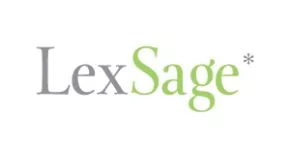If the Canada Border Services Agency ("CBSA") confiscates or cancels your NEXUS Card due to an enforcement action (e.g. the CBSA seizes goods because you failed to declare the goods or the value provided to the CBSA was incorrect), your NEXUS Card will be cancelled. The CBSA's normal administrative period for cancellation of a NEXUS Card for an infraction (the default position) is 6 years. Normally, you lose your trusted traveler status and must rebuild a relationship of trust with the CBSA. You cannot successfully reapply for a NEXUS Card for 6 years. Even then, the CBSA may reject your application to use an alternative method of presentation to the CBSA (NEXUS).
We have found the CBSA Recourse Directorate to be willing to reduce the period of the NEXUS Card cancellation to 12-18 months in certain circumstances. Recently, the CBSA Recourse Directorate has been more reasonable when considering NEXUS appeals. Based on our experience, the reduction in the period of NEXUS cancellation only occurs when the traveler appeals the customs infraction or enforcement action and asks for a review of the NEXUS cancellation. The appeals must be carefully written and should not undermine the case being presented to the CBSA Recourse Directorate.
The CBSA Recourse Directorate may reduce the period of NEXUS cancellationwhen they determine that the nature of the infraction is of a minor nature. What is considered to be "minor" by the CBSA Recourse Directorate depends on the circumstances and specific facts of a given case/traveler. We are able to give a few generic examples - We recently successfully reduced the length of the period of NEXUS cancellation when a client declared an overage (that is, the client declared to the primary CBSA officer or at a NEXUS kiosk or other customs kiosk that they exceeded their personal exemption limit), but did not calculate the overage properly. We also successfully reduced the length of a period of NEXUS cancellation where a client failed to declare goods of low value. We also successfully reduced the length of a period of cancellation when a client received a gift in Canada and did not know the gift giver had failed to declare the good upon importation.
There are certain circumstances where the CBSA Recourse Directorate will not be lenient and will not likely reduce the period of NEXUS cancellation. The CBSA is not forgiving when the traveler fails to declare (1) cannabis, (2) alcohol or (3) tobacco. The CBSA considers the failure to declare even a partial bottle of alcohol to be a serious infraction. We have previously written about the CBSA's approach to alcohol and tobacco infractions - Alcohol And Tobacco: Two Things That Cause CBSA Officers To Not Apply Common Sense
Cannabis is a new issue that has been more prevalent since Canada legalized sales of cannabis domestically within Canada. It is still illegal to import cannabis without a proper license (only licensed producers are permitted to import cannabis - not travelers). Since the importation of cannabis (even a small amount) may result in criminal charges, the CBSA will not be lenient when it comes to a NEXUS card. This is considered to be a serious infraction.
The CBSA also will not be lenient if the traveler has deliberately failed to declare an expensive item and acted to deceive the CBSA. For example, if the traveler purchased an expensive purse or watch or piece of jewelry or shoes and does not declare the good upon importation into Canada (while wearing or using the item), the CBSA is less likely to be lenient. Canadians are often told by salespeople outside Canada to mail the receipt to themselves and wear the item home - this is a big NO NO. The CBSA often finds the light packages with the receipt and knows that the traveler has attempted to deceive them to avoid paying applicable duties and taxes on the expensive item. The CBSA will not shorten the NEXUS cancellation in these cases as they want to maintain a flag of the travelers file and check their compliance with Canada's customs laws.
We have written numerous articles about NEXUS appeals. See the following articles:
- How Can I Get My NEXUS Card Back When It is Cancelled/ Confiscated By The CBSA?
- What were the Top 10 Reasons for NEXUS Card Cancellations in 2017?
- Can the Canada Border Services Agency Search Electronic Devices?
- Do Not Pass GO: Forgetting Your Receipts Gets You A Ticket To CBSA Secondary Inspection
- Canadian Resident NEXUS Travelers Should Bring Traveller Declaration Card to Report Purchases to CBSA
The content of this article is intended to provide a general guide to the subject matter. Specialist advice should be sought about your specific circumstances.

